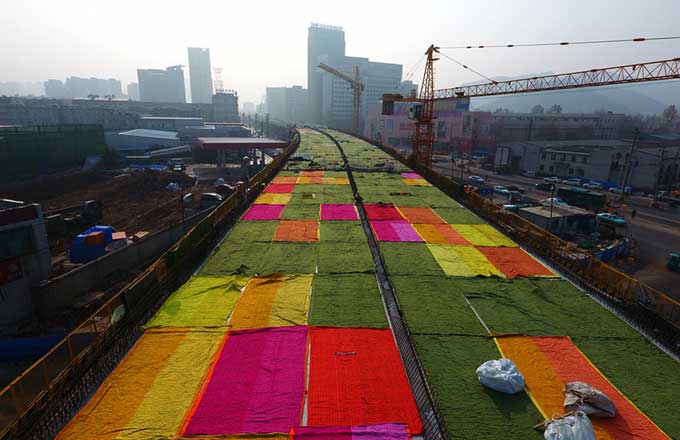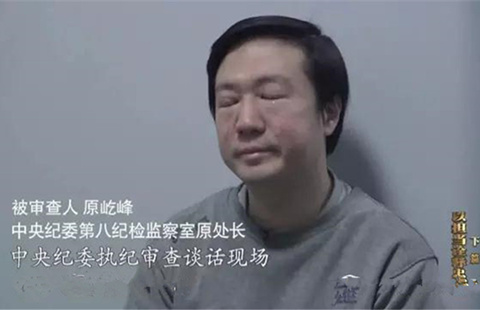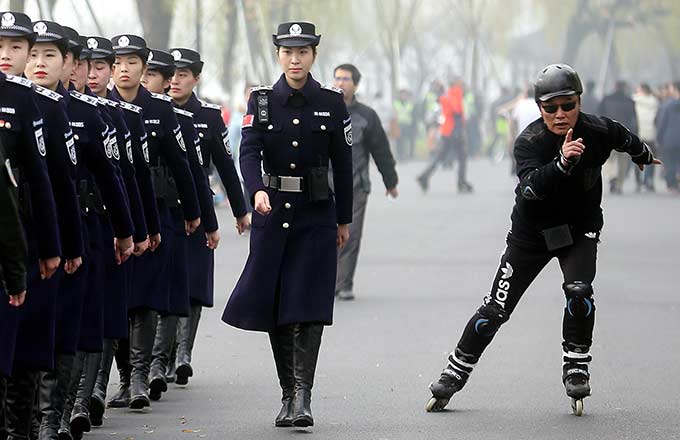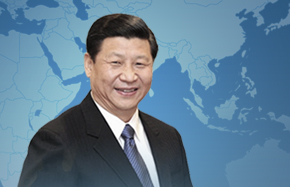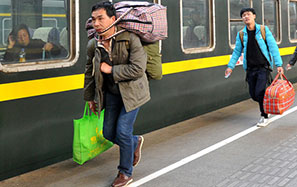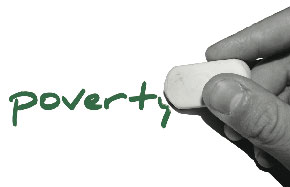Breast-feeding needs more public support
Breast-feeding is hard. For Chinese mothers, the absence of a wide support system makes it even harder, according to breast-feeding mothers and medical experts.
"More people are becoming aware of the benefits of breast-feeding, but the society is still not fully ready. It is still blind to the needs of breast-feeding mothers," says Han Tongyan, a pediatrician with the No 3 Hospital of Peking University.
"A lot of new mothers I know have to quit their job so they can breast-feed their children better."
The hardest hurdle is the length of the average maternity leave, which is usually 98 days, according to China's labor laws. But in many smaller communities and in the private sector, this entitlement is often ignored, although there are clear penalties for employers who violate the regulation.
Xie Runxin, a mother to an 11-month-old boy in Huainan, Anhui province, says mothers she knew usually had to work within three months after delivery. One of her friends had to get back to work just one month after delivery.
According to Han, the ideal length of maternity leave should be at least four to six months, because once mothers go back to work, the busy schedule and pressure will affect the quality and the quantity of breast milk. For infants under 6 months, mother's milk is still the best.
Many working mothers have to take breaks during work to express and keep their milk, and this milk, which would be frozen then defrosted and warmed for the child, is not as good as fresh milk, says Liu Zhaoqiu, a pediatrician with the No 1 Hospital of Tsinghua University.
To be able to breast-feed on the move is another difficulty nursing mothers face, and there is noticeable lack of facilities such as nursing rooms and baby stations in public places.
Although there are no official statistics, a recent survey conducted by opinion poll websites idiaoyan.com and minyi.net.cn shows that 93 percent of companies in China do not have a special nursing room for female employees.
In shopping malls and other public places, such facilities are even rarer.
Liu Qidi, a mother in Wuhan, says she has to use a specially made cloth to cover her breasts while breast-feeding in public because even in Wuhan, the capital of a well-developed province, there are few nursing rooms, let alone baby stations.
"Being a breast-feeding mother is not easy," Liu says.
"I really hope there will be more support for us."
Contact the writer at [email protected]






